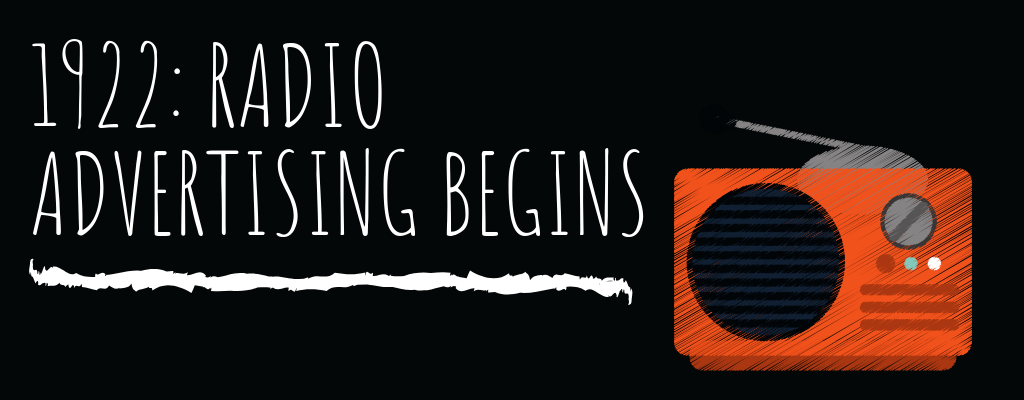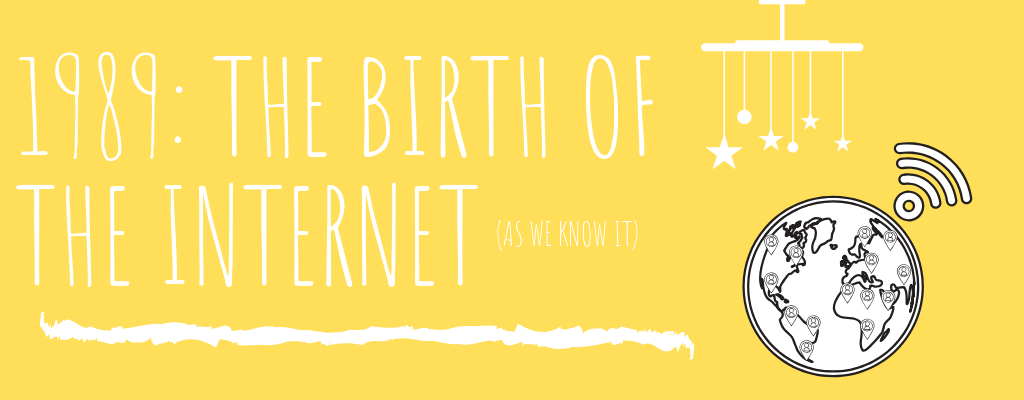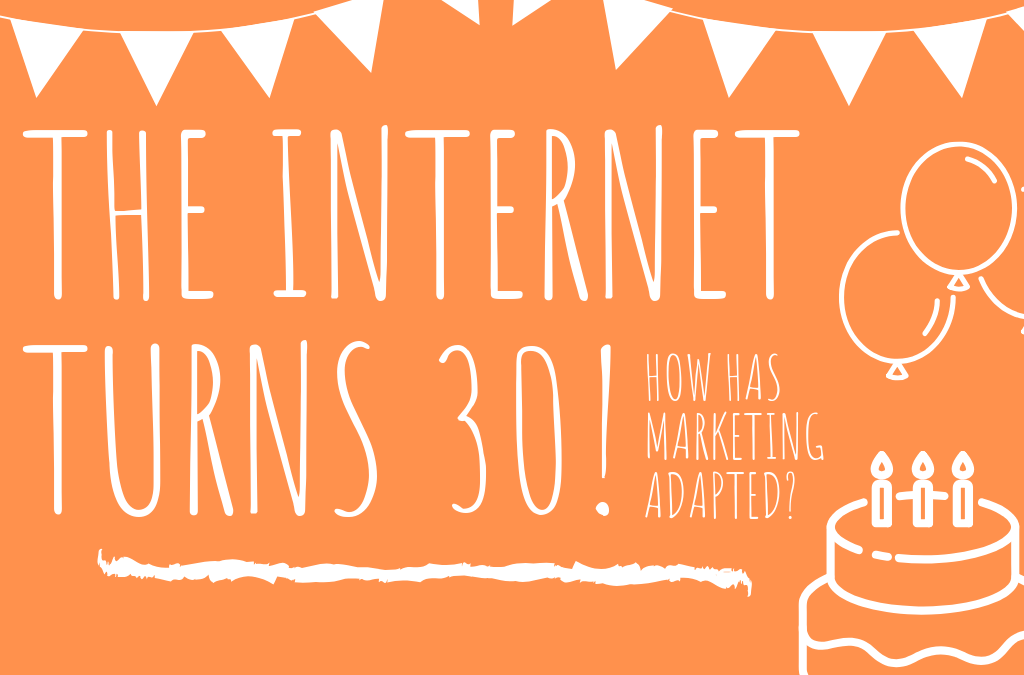Seeing as the internet is 30 years old this year, we thought we’d take a look at how marketing has evolved and adapted over time and as it turns out, marketing has been going far, far longer than the internet has. As far as history goes back people have been selling things, and as long as people have been selling people have been marketing.
1839: Posters on private property banned in London
People would print adverts on physical objects in high traffic areas but unfortunately, it was banned in London – not the best start.
1864: Earliest recorded use of the telegraph for mass unsolicited spam
Whilst it seems quite amusing that they used the word spam, supposedly that is what it was – mass advertisement whether you wanted to hear it or not.

1922: Radio advertising begins
Radio advertising was a big step in marketing history as allowed businesses to spread the word on a mass scale to a variety of audiences.
1941: First recorded use of TV advertising
Whilst radio advertising was extremely successful, the addition of visuals in TV advertising allowed companies to actually show the audience what they were trying to sell them, whilst still being on a huge scale. The very first TV advert was for Gibbs SR toothpaste.

1950s: Systematization of telemarketing
Not necessarily the best thing to come out of marketing, but still a crucial moment in marketing history. The systemization of telemarketing meant that companies could reach a wide range of people and have the ability to speak with them directly.
1980s: Development of database marketing and the birth of relationship marketing
The ability to send something to a large amount of people seems minor nowadays but in the 1980s it was revolutionary, and most of all extremely time-saving. The birth of relationship marketing was created to put more of a focus on customer engagement and satisfaction, rather than sales.
1985: Desktop publishing made print advertising accessible to all budgets
The ability to create and edit at your own desk meant that people no longer had to rely on professionals to design something for them – whether that be something personal like a party invite, or a poster advertising their goods or services.

1989: The Birth of the Internet
The birth of the internet as we know it today (The World Wide Web)
1990s: CRM dominates in promotions and marketing planning
Customer-related Management allowed businesses to manage customer data and use this to find out who their audience are and what they want.
1996: Viral Marketing goes big
People were given the ability to share things with everyone in their contact list and seemingly the internet loved it – the ability for nineties’ internet users to share content over new systems like email was something people hadn’t seen before.
2003/4: MySpace, LinkedIn and Facebook founded
The beginning of social networks and coincidentally the demise of our free time. The popularity of social networks meant that companies could put their advertisements on there and know that they would be seen, due to the sheer amount of time spent on them.

2005: YouTube and Vimeo launched
Whilst video didn’t get an overwhelming amount of attention from brands immediately it Is certainly safe to say that it has done more than caught up. From sidebar advertisements, adverts before and during videos to actual videos adverts themselves, video is a massive part of marketing.
2006: Twitter founded
In terms of marketing, unlike other social networks, Twitter was all about the capability of a direct one-on-one interaction between a brand and customer. Similarly, to the other social networks, it also meant a greater exposure in terms of adverts.
2010: First scented billboard
There’s a reason this didn’t take off…
The real question is: What’s next? What will be the next big thing in marketing that makes everyone step back and think? Only time will tell…

About the author….
Beth Grice is a journalism student at York St John University and is at Social Bods on work experience. We are sure she has a bright future.

Want to get our newsletter and learn about new events and get free social media help and advice? Register here



Very interesting clear and informative.
Thanks Annemarie! Beth wrote a great article here we think 🙂